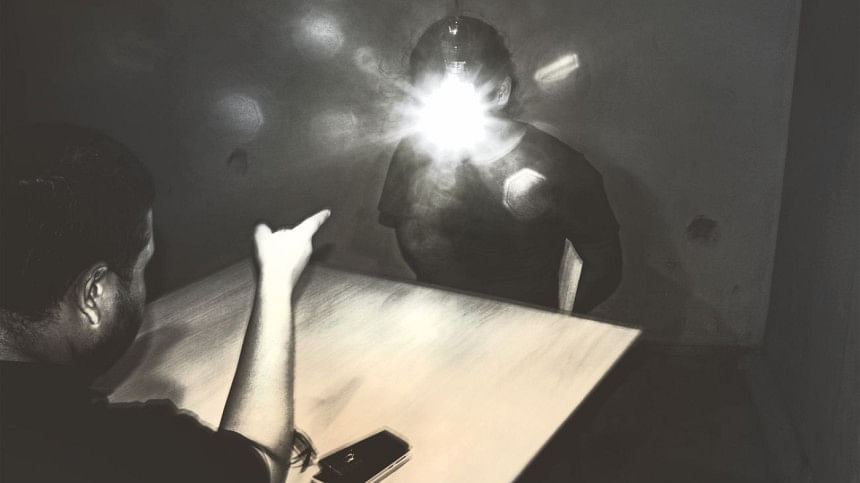‘End immunity enjoyed by law enforcers’

Survivors of enforced disappearances yesterday called for an end to the blanket immunity enjoyed by law enforcement agencies in Bangladesh.
The lack of accountability has allowed systematic torture, custodial abuse, and enforced disappearances to continue unchecked, they said.
On the occasion of the International Day in Support of Victims of Torture, United for the Victims of Enforced Disappearances (UVED) urged the government to establish independent oversight mechanisms for all security forces and intelligence agencies and to formally acknowledge the involvement of these agencies in rights violations.
In a statement, UVED said, "Weak oversight, entrenched impunity, and political interference in law enforcement and the judiciary have enabled state agencies to commit torture with near-total immunity. Law enforcement bodies routinely operate beyond legal limits, while victims face retaliation, complex legal barriers, and an inaccessible justice system."
The group said law enforcement agencies often use remand to extract forced confessions, extend illegal detention beyond the 24-hour legal limit, and target political opponents.
Weak oversight, entrenched impunity, and political interference in law enforcement and the judiciary have enabled state agencies to commit torture with near-total immunity.
It added that political interference, weak enforcement, and the reluctance of magistrates to challenge illegal remand practices have allowed torture to become routine.
"In practice, it [remand] has become synonymous with custodial torture and inhuman treatment," UVED said.
The group also called for the publication of a white paper, under judicial supervision, to document incidents of torture and name those responsible.
It also urged institutional reforms to ensure that confessions obtained under duress are inadmissible and that the remand system is not misused.
UVED demanded the repeal of laws it described as repressive and incompatible with international human rights standards.
These include the Special Powers Act, 1974 and the Anti-Terrorism (Amendment) Act, 2013, which, it argued, have been used to justify extrajudicial killings, arbitrary arrests, and enforced disappearances.
The organisation also called for legal reforms to recognise enforced disappearance as a crime against humanity and for anti-terrorism trials to be concluded within one year. If no verdict is reached within that time, the accused should be released, it said.
UVED noted that despite the passage of the Torture and Custodial Death (Prevention) Act in 2013, not a single conviction has been made under the law.
"This reflects not only institutional failure but also the entrenched nature of impunity within the security and justice sectors," it said. Victims and their families, it added, are frequently intimidated into silence, and attempts to file complaints are routinely blocked.
The group also criticised Bangladesh's reservations on key articles of the UN Convention Against Torture.
UVED demanded reforms to the National Human Rights Commission to make it independent and effective, and an end to political influence over the judiciary.
"Torture is not just a crime -- it is an attack on democracy and justice," the group said.
Meanwhile, Bangladesh Legal Aid and Services Trust (BLAST) yesterday urged the government to urgently implement legal reforms and swift resolution of all pending cases in order to prevent torture and ensure justice for victims.
In a statement issued on the occasion of the International Day in Support of Victims of Torture, BLAST also requested the government to ratify the Optional Protocol to the UN Convention against Torture (OP-CAT), as well as to reform the Torture and Custodial Death (Prevention) Act 2013, the Code of Criminal Procedure 1898, and other relevant laws to ensure that victims of torture secure justice and accountability, and timely and adequate reparations.

 For all latest news, follow The Daily Star's Google News channel.
For all latest news, follow The Daily Star's Google News channel. 



Comments